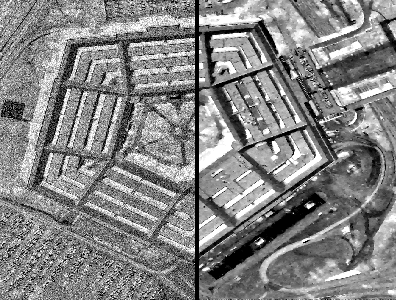Accurate approximations for L1 image denoising
Spring 2011
Master Semester Project
Project: 00205

Removing noise in images is an important issue that arises in several fields, e.g., in photography or biomedical applications.
The denoising methods that we consider in this project are expressed in a variational framework, as the minimization of two summed terms. The first term is a data part that enforces relative closeness between the noisy measurements at each pixel position and the denoised solution. The second term acts as a regularizer. It enforces image regularity, seeking to minimize the Lp-norm of some linear differential operator in (e.g., gradient) applied to the whole image.
In all cases, the important issue is how to properly evaluate this continuous differential operator, given the available image pixels that are discrete. To do so we consider an underlying continuous-image model that interpolates the pixel values, using B-spline basis functions with appropriate continuity. The differential operator can then be evaluated as a discrete filter applied to the corresponding B-spline coefficient sequence.
Linear denoting fits into the case p = 2. Within the B-spline framework, such a regularizer applied on the continuous image can be used in its exact form, yielding the so-called smoothing-spline solution. However, L2 regularization smoothes out certain image details. For this reason, recent methods consider L1 regularization using similar differential operators (i.e.,TV denoising).
However, in order for the problem to be solvable, the continuous L1 term must be approximated. So far, this has always been done by evaluating these operators at a finite number of positions that correspond to the number of image pixels. It has been observed that this approximation can substantially affect the final results, depending on how it is defined. In this project, we thus want to investigate whether finer approximations of the continuous L1 term can further improve the denoising result.
- Supervisors
- bourquard
- Michael Unser, michael.unser@epfl.ch, 021 693 51 75, BM 4.136
- Stamatis Lefkimmiatis, stamatis.lefkimmiatis@epfl.ch, BM 4.138, Tel: 351 36